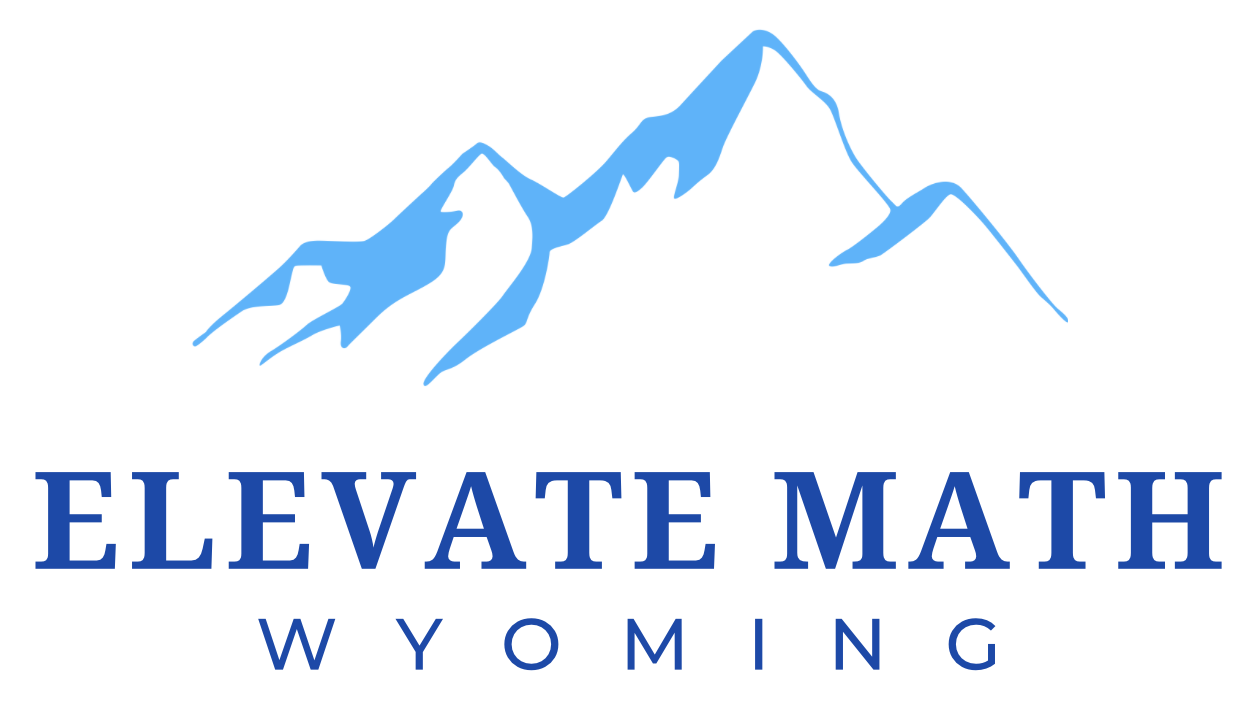
Community Resources
Elevate Math Wyoming uses a wide range of hands-on tools to help students explore and understand mathematical concepts. These math manipulatives—such as base ten blocks, dominos, colored counters, and algebra tiles—make abstract ideas concrete and support deeper learning through play and exploration.
Manipulatives are widely used in regular school curricula, helping students visualize number relationships, develop problem-solving skills, and build confidence in math. By having these same manipulatives accessible at home, families can reinforce classroom learning, support homework practice, and encourage meaningful conversations about math in everyday life. Check out some of the tools in our toolbox below (note - this is not an exhaustive list).
Common Math Manipulatives
-

Base Ten Blocks
Base Ten Blocks are hands-on math manipulatives that help students develop number sense, as well as understand and represent numbers. Base ten blocks are extremely versatile tools that can be used to model place value, addition, subtraction, regrouping, multiplication, division and decimals.
-

Cuisenaire rods
Cuisenaire rods help students develop early number sense and math fact fluency. Students can manipulate the rods to discover patterns such as doubles, number combinations and equivalences, as well as visualize the “making 10” fact families.
-

Colored Counters
Colored counters are a versatile, hands-on tool that can be used to model a range of math concepts, from early counting to creating patterns, performing the 4 basic operations and working with negative numbers. Ever wonder why 6 - (-2) = 8? Model it with colored counters!
-

Dominos
A standard set of Dominos can easily be used to practice counting and subitization, as well as support a multitude of games to practice more advanced math concepts and promote math fact fluency.
-

Fraction Tiles
Fraction Tiles offer an easy way to visualize and compare fractions, find equivalents, practice the 4 basic operations with fractions and convert between mixed numbers and improper fractions.
-

6 and 10-sided Dice
Regular 6-sided and 10-sided dice are an indispensable tool for practicing math facts. A set of 6 or 10-sided dice can easily be used to develop number sense, practice counting and subitization, and support math fact fluency.
-

Playing Cards
A standard deck of Playing Cards is one of the most useful tools to have in your toolbox for practicing core math concepts. Many traditional card games (such as “War” and “Go Fish”) can be easily revised to support math fact fluency and develop foundational math skills in incredibly fun and engaging ways!
-

Hundreds Grids
A simple 10×10 Hundreds Grid is an essential tool for modeling multiplication, fractions, decimals and percents, as well as the four basic operations with fractions and decimals. A Hundreds grid can also support basic counting and addition games.
-

Number Lines
The basic Number Line is an early math manipulative that grows with students as they progress through more advanced topics. Number lines support early number sense development, addition, subtraction, multiplication, fractions, decimals, the understanding of negative numbers and more.
-

Algebra Tiles
Algebra Tiles are powerful tools for supporting your student’s understanding of algebra. Algebra tiles can be used to model expressions, combine like terms, solve equations, multiply binomials and factor trinomials. Algebra tiles are a game changer for many students, allowing them to represent the abstract concepts of algebra in concrete ways.
JES “After the Bell” Math games
Is your student participating in our “After the Bell” Math Practice and Number Sense Development program at Jackson Elementary School? Click below to request access to the online repository of weekly math games.
